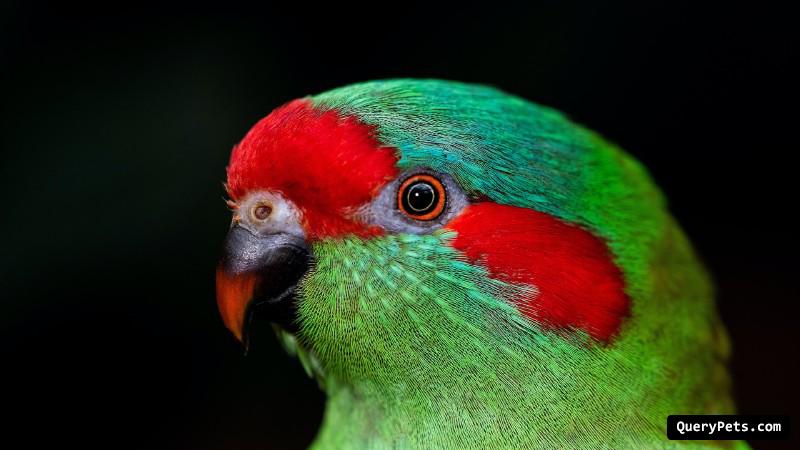Why Does My Bird Bite Me Softly?

Birds unique behaviors, such as the tendency to bite softly, are often mysterious to many bird owners.
Soft biting, also known as ‘beaking’, is a regular part of bird behavior but can sometimes be difficult to understand.
This article will shed light on why birds might bite softly, diving into the underlying reasons behind this behavior and providing practical strategies on how to respond.
Why Does My Bird Bite Me Softly?
When your bird bites you softly, it is usually trying to communicate something to you. Birds use beaking as a primary means of exploration, similar to how a baby might use its mouth.
It is a way for them to interact with their environment and express their needs or feelings. However, there’s more to the story than just exploration.
Let’s dive into the fascinating world of bird behavior to better understand why birds might engage in soft biting.
Understanding Bird Behavior
Birds, particularly parrots, are known for their intelligence and complex social structures. Their behaviors are often a mix of instincts, learned behaviors, and communication techniques.
Beaking, preening, squawking, flapping, and biting are all part of a bird’s vast behavioral repertoire.
Communication among birds is primarily non-verbal. They use body language, vocalizations, and physical interactions like soft biting to express their intentions or feelings.
Thus, understanding these communication techniques is crucial to interpreting and responding to your bird’s actions correctly.
Reasons Why Birds Might Bite Softly
Misinterpretation of the Bird’s Intent
A crucial aspect of bird interaction is understanding what they’re trying to communicate. Soft bites are typically non-aggressive behaviors, unlike hard bites, which are often a clear sign of fear, annoyance, or aggression.
Soft biting can convey various meanings, such as affection, playfulness, or curiosity. Understanding these signals will help bird owners interact with their pets more effectively and foster a stronger bond.
Overstimulation
Birds, despite their sociable nature, can become overwhelmed or stressed by excessive handling or stimulation. In such cases, soft biting might be a gentle way for the bird to communicate its need for space.
Look for signs of overstimulation like excessive squawking, ruffled feathers, or agitated movements to identify if your bird needs a break.
Claiming Territory
Birds, like many animals, have a natural instinct to claim and protect their territory. Soft biting can be a way for them to establish boundaries with their owners.
If your bird tends to bite when you’re near their cage or during feeding times, they might be exhibiting territorial behavior.
Affection
Interestingly, soft biting can be a sign of affection. Birds often groom each other in a behavior called ‘allopreening’, where they gently nibble each other’s feathers. If your bird is softly biting your fingers or nuzzling into your hand, it might be a display of affection.
Look for other signs of bird affection, such as fluffed feathers, clucking sounds, or the bird leaning into your touch.
Mimicking Human Behavior
Birds, particularly parrots, are famous for their ability to mimic human behavior and speech. Soft biting might be a learned behavior if your bird sees you use your hands or mouth to interact with objects. They could simply be mimicking your actions as a way of bonding with you or exploring their environment.
How to Respond to Soft Biting
Observing Behavior Changes
Noticing changes in your bird’s behavior is a crucial step in understanding and managing their biting habits.
Look out for an increased frequency of soft bites or any transition from soft to hard biting. These changes might indicate that your bird is stressed, ill, or uncomfortable with something in its environment.
By observing these signs, you can make the necessary changes to improve your bird’s wellbeing.
Training Your Bird
Training is an effective way to manage biting behavior in birds. Start by identifying the triggers that lead to biting.
Once you’ve figured out what causes the biting, you can use positive reinforcement techniques to promote better behavior. For instance, reward your bird when they interact with you without biting.
Over time, your bird will learn that not biting leads to positive outcomes, reducing their biting behavior.
Seeking Professional Help
If soft biting persists despite your best efforts, or if the bites become hard and aggressive, it might be time to seek professional help.
A certified bird trainer or avian vet can provide specialized guidance based on your bird’s breed, age, and behavior.
They can identify any underlying issues and provide appropriate solutions. Remember, when it comes to your bird’s health and wellbeing, there’s no shame in seeking expert advice.
Conclusion
Birds use soft biting as a communication tool, expressing a variety of sentiments ranging from affection to territoriality. As a bird owner, understanding these signals will greatly enhance your relationship with your feathered friend.
Be patient and observant, keeping an eye out for changes in behavior that could signal an issue. Remember to use positive reinforcement when training your bird, and don’t hesitate to seek professional help if needed.
Bird behavior can be complex, but with patience, understanding, and a little bit of help, we can navigate the world of bird communication effectively.
